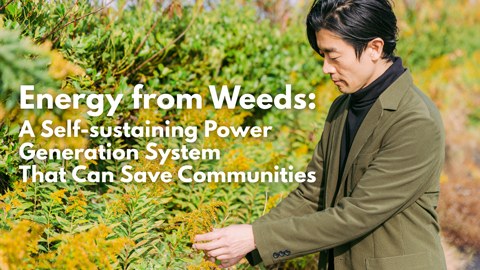The maternal mortality rate in Sub-Saharan Africa is 130 times that of Europe or North America. Most maternal deaths occur in rural areas with limited access to medical facilities, suggesting that lives could be saved if appropriate care were provided. One Japanese corporation has come up with a proposal for doing exactly that, and is already driving a wave of change spreading across rural Africa.
According to statistics published in 2023 by the United Nations Maternal Mortality Estimation Inter-Agency Group, around 70 percent of the world’s maternal deaths occur in Sub-Saharan Africa. Wellness checks for pregnant women are not yet common in this region. In rural areas, the clinics that might perform such checks often struggle with issues such as low quality of care and a shortage of doctors with the necessary expertise—or are simply too remote for pregnant women to travel to.
This was the situation faced by FURUTA Kuniyuki, CEO of SOIK Corporation. Furuta had previously been involved with African health and medical care as an official at the Japan International Cooperation Agency (JICA), which handles Japan’s overseas development and assistance (ODA) efforts. Ever since his time with the agency, Furuta has been determined to find solutions for the challenges linked to health care in Africa, and in September 2019, he founded SOIK with the specific mission of reducing preventable maternal and child deaths.
SOIK now distributes a digital maternal and child health package called SPAQ. Each SPAQ kit contains a portable sonograph, essential for maternal wellness checks, along with a fetal monitor and digital blood pressure meter that can be linked to a smartphone to gather prebirth health data in one location. Data analysis and coordination with medical organizations are built into the system to permit a rapid response to any downturns or abnormalities in the mother’s test results. SPAQ is readily usable by nurses and midwives who are not specialist doctors as they visit the different villages on their route. As a result, even pregnant women in rural areas can now receive a certain level of prenatal medical care and detection of life-threatening issues such as ectopic pregnancies and placenta previa. More than 10,000 digital prenatal checkups using SPAQ have been performed so far, and the wellness check rate for pregnant women has gone up by around 75 percent per facility. Most importantly, around 100 lives have been saved by early detection of maternal health issues.
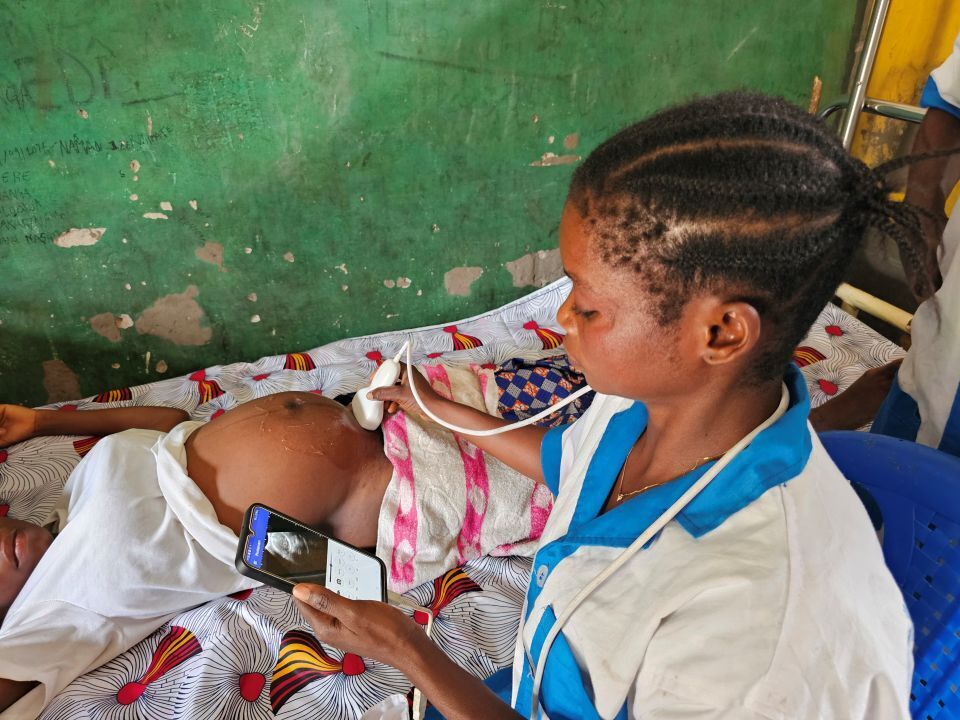
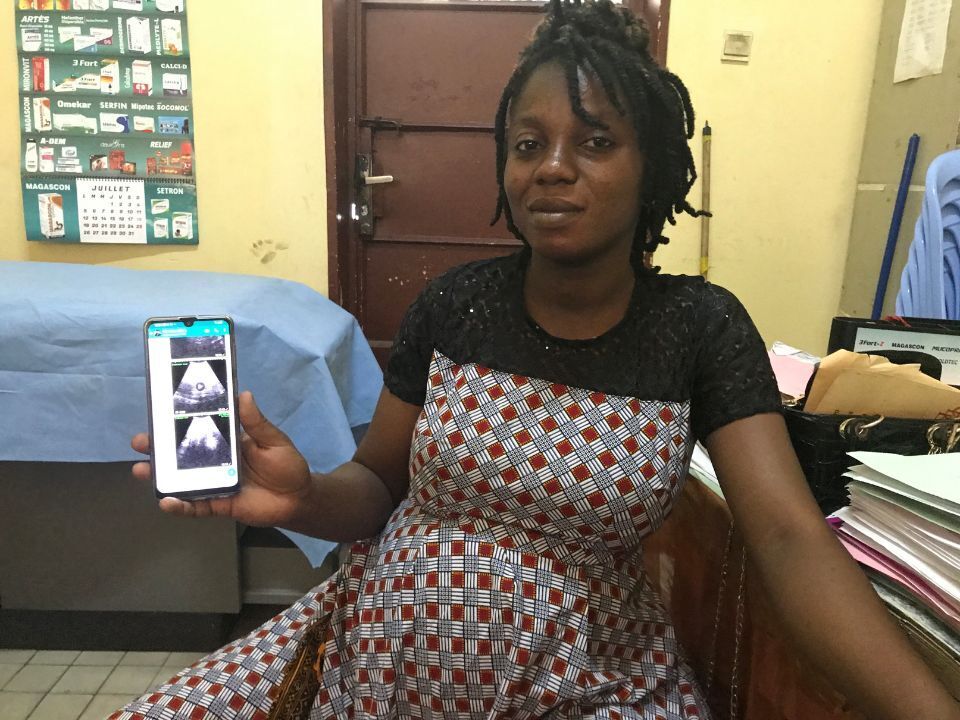
Left: Connecting a smartphone to the portable sonograph using the SPAQ app for a maternal wellness check.
Right: An expectant mother shows a sonogram of her unborn child. Along with providing SPAQ kits, SOIK Corporation also promotes awareness among African communities of the importance of maternal wellness checks.
Useful as the current version of SPAQ is, SOIK is already planning an upgrade that will introduce “AI sonography” for instant analysis of sonograms. The technology will distinguish between normal and abnormal findings, and provide suggestions for responding to any abnormalities that are detected. Once AI sonography is introduced, volunteers using SPAQ will be able to perform maternal wellness checks even in villages with no medical workers, helping even more pregnant women receive this vital care.
“If we can expand the ranks of SPAQ users from doctors and midwives to include community volunteers as well, women who were unable to receive screenings in the past will have access to them, and wellness check rates for pregnant women will soar,” says Furuta. “We’re eager to see this happen, so we’re negotiating with multiple countries on a framework for introducing AI sonography. For example, we work with the Congo Ministry of Health to create rules together so that even those who are not medical professionals can perform sonograms.” In January 2026, a verification test using SPAQ with AI sonography will be carried out in parts of the Democratic Republic of the Congo (DRC).
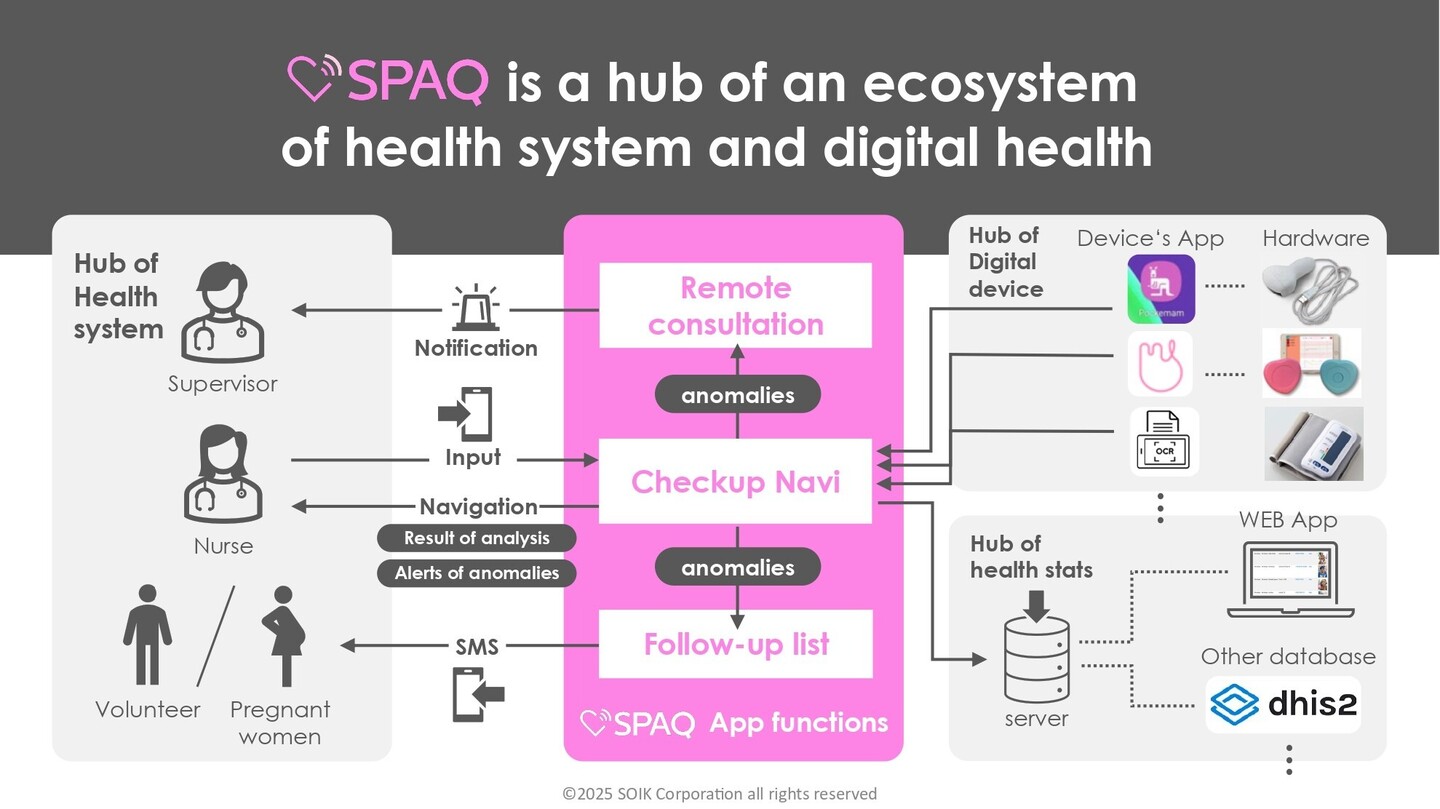
Overview of the SPAQ system. The area at top right shows how maternal wellness checks can be provided using the portable devices included in SPAQ kits. If an abnormality is detected, users can also access remote medical personnel to ensure professional treatment.
At present, SPAQ is in use in the DRC, Sierra Leone, Zambia, and Gabon, with plans for expansion to Ethiopia. However, Furuta is not simply pursuing higher rollout numbers, as he knows from past experience that high-tech equipment is meaningless unless it is used. This makes it essential to improve the SPAQ user interface. Even as he oversees projects to make the interface more approachable, he also regularly visits sites to follow up on the system’s deployment.
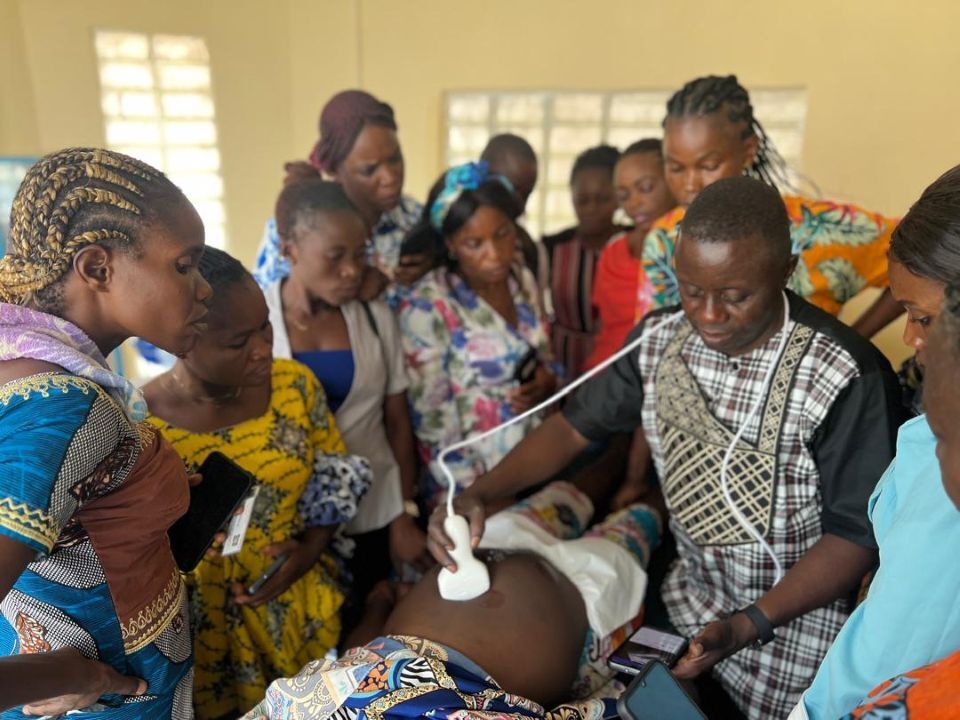
Each SPAQ kit contains a portable sonograph, fetal monitor, digital blood pressure meter, and smartphone. To save more people with each kit, training is carried out to show not only nurses and midwives but also village volunteers how to use SPAQ to perform wellness checks on high-risk pregnant women.
Furuta’s vision for the project’s future is clear. “Our service is specialized for maternal health care function support in small communities like those found in rural areas,” he says. “Eventually, we hope to share this data with referral hospitals. We want to establish connections with national medical information systems. This should make medical collaboration easier through more efficient data storage. Then, when an abnormality is discovered in a woman receiving a maternal checkup at a small medical facility, she can quickly be connected to high-level medical treatment.”
As SOIK pursues its goal of gaining a firm foothold for SPAQ in Africa, the company continues to monitor the situation on the ground and foster ties with regional governments while developing the system further and following up on its application.
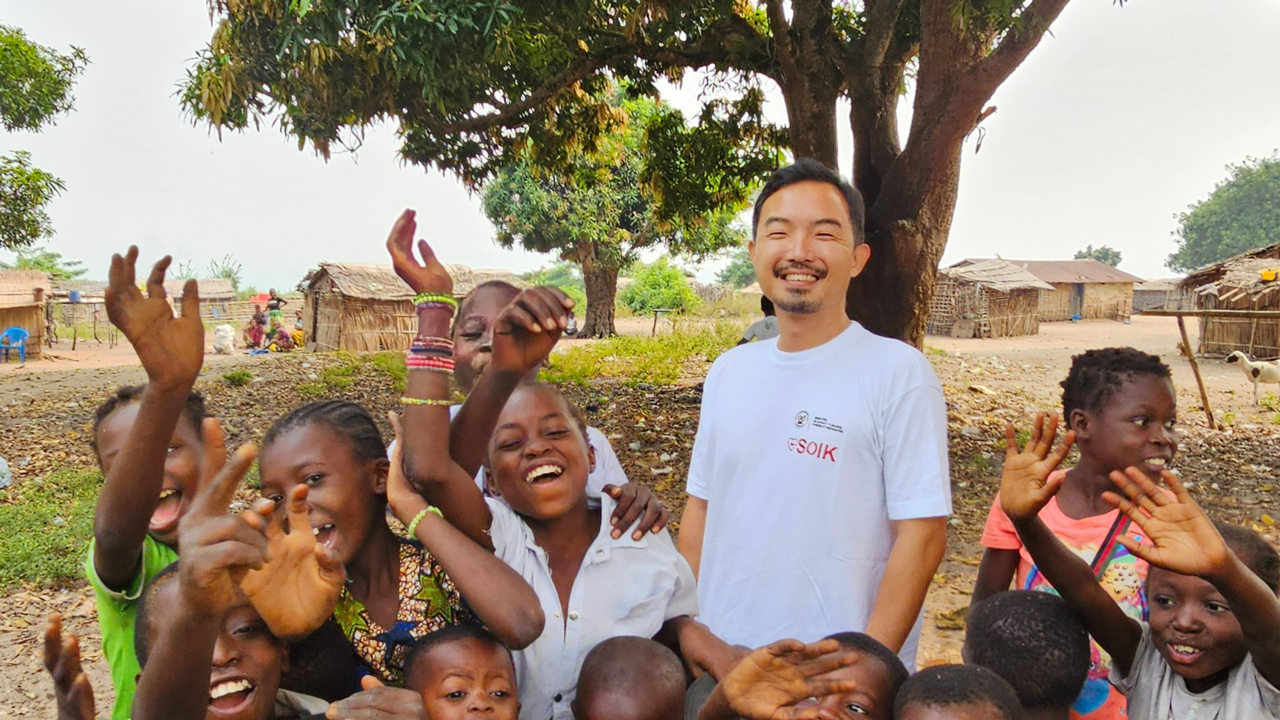
FURUTA Kuniyuki, CEO of SOIK Corporation, with local children in Africa, where he works to reduce the health risks for expectant mothers.




























